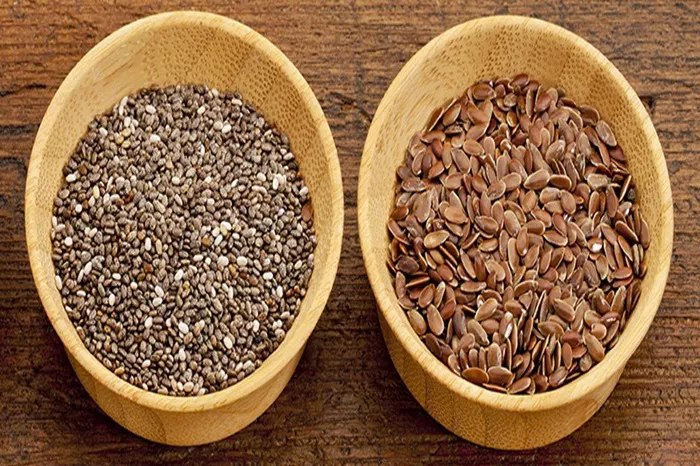Maintaining healthy skin relies heavily on balanced eating habits, adequate hydration, and sufficient sleep. Key dietary components for skin health include fiber, vitamin C, and antioxidants. Recently, seeds have gained popularity in health-conscious diets due to their nutrient density, playing a significant role in skin health. This article explores the nutritional benefits of chia seeds and flax seeds to determine which may be more advantageous for long-term skin health.
Nutritional Profiles of Chia Seeds and Flax Seeds
Chia Seeds: Rich in omega-3 fatty acids, particularly alpha-linolenic acid (ALA), chia seeds are essential for maintaining the skin’s moisture barrier, reducing inflammation, and promoting a smooth complexion. They also contain antioxidants that combat free radical damage, helping to prevent premature aging, wrinkles, and dullness. Additionally, the zinc found in chia seeds supports skin repair, helps prevent acne, and maintains clarity. Notably, chia seeds can absorb 10-12 times their weight in water, aiding in skin hydration.
Flax Seeds: Like chia seeds, flax seeds are an excellent source of omega-3 fatty acids, contributing to healthy skin cell function and inflammation reduction. They are particularly high in lignans, plant compounds with antioxidant properties that combat aging signs. Flax seeds also provide vitamin E, which assists in healing sun-damaged skin and reducing redness and irritation.
Hydration Benefits
Chia seeds are renowned for their ability to retain water, making them exceptional for skin hydration. Conversely, while flax seeds do not absorb water as effectively, their omega-3 fatty acids help retain moisture and support skin health.
Anti-Aging Properties
Experts suggest that the antioxidants in chia seeds effectively combat free radicals, protecting the skin from aging signs such as fine lines and wrinkles. Meanwhile, flax seeds, rich in lignans and antioxidants, also protect against free radical damage and enhance skin elasticity.
Acne Prevention
Zinc in chia seeds aids in reducing acne by regulating oil production and inflammation. Their high fiber content promotes digestion and detoxification, further enhancing skin health. Flax seeds, on the other hand, can help balance hormones due to their lignan content, potentially reducing hormonal acne.
Skin Healing and Repair
From a healing standpoint, chia seeds provide omega-3s, zinc, and antioxidants that assist in repairing damaged skin and promoting faster cell regeneration. Flax seeds, with their omega-3s and vitamin E, are also beneficial for skin repair, nourishing the skin and improving overall texture. Regular consumption can lead to smoother, clearer, and more even-toned skin over time.
Which is Healthier for Skin?
Both chia and flax seeds offer distinct advantages for skin health. Chia seeds may have a slight edge due to their higher omega-3 fatty acid content and superior hydration properties, essential for maintaining plump and glowing skin. Flax seeds, however, excel in hormone balancing, which can benefit acne-prone skin, and are richer in lignans that improve skin elasticity and combat aging.
Ultimately, the choice between the two seeds depends on individual skin concerns. Consulting a certified expert is recommended before making any dietary changes to maximize skin health benefits.
Related topic:
Can Light Therapy Reduce Dark Circles?
Top 10 Home Remedies To Remove Black Neck
What Is The Most Natural Looking Facelift?

